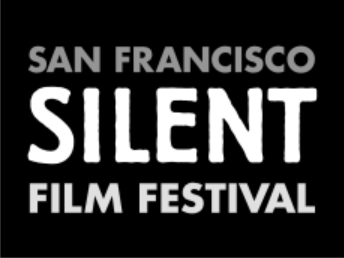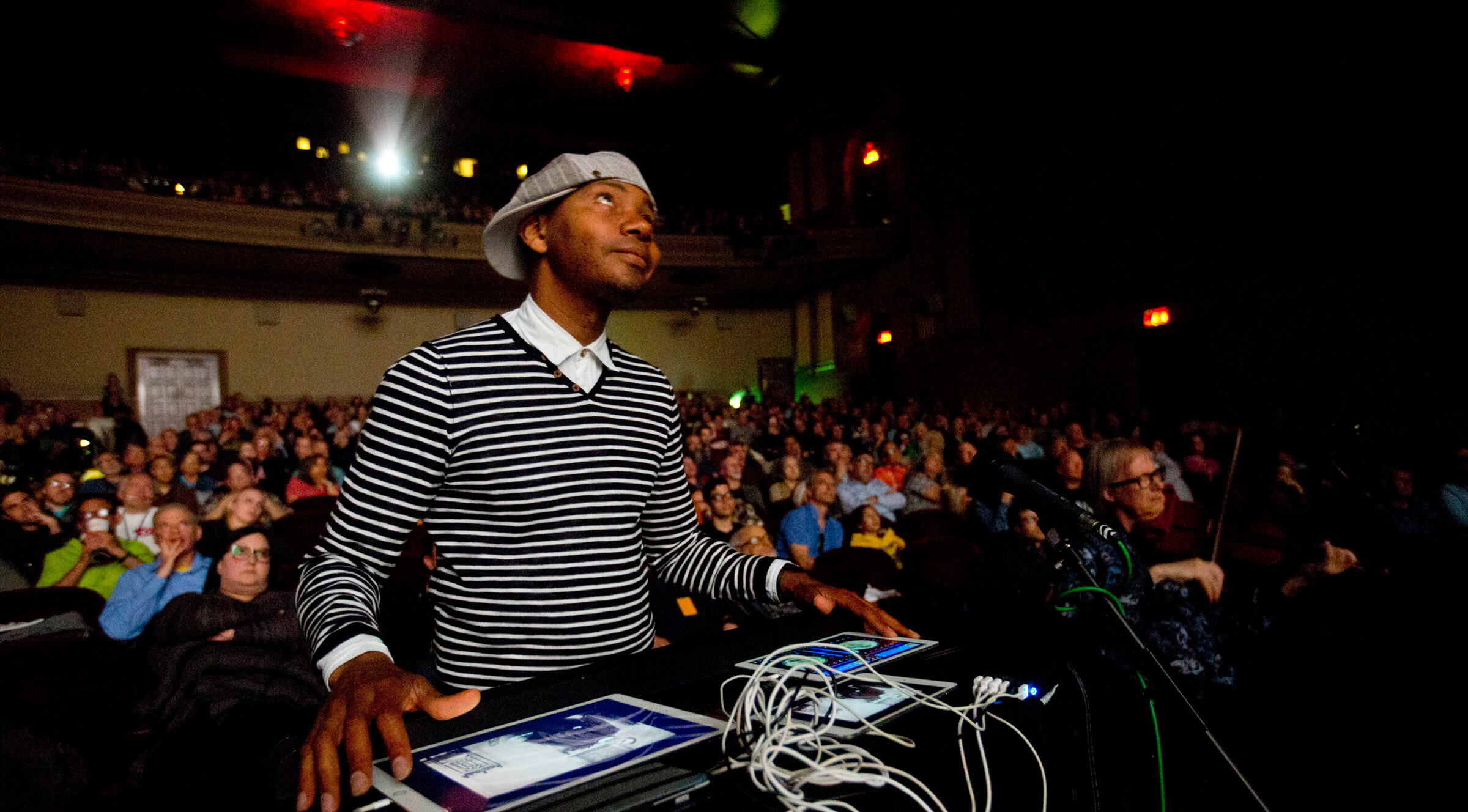This interview was published in conjunction with the screening of Body and Soul at SFSFF 2017
As DJ Spooky (That Subliminal Kid), Paul D. Miller has been a trailblazer in the realms of hip hop and trip hop and a master of the remix. He’s also a philosopher, teacher, historian, science fiction author, and media artist whose work has circulated the globe. And, for more than a decade he has been passionately involved in silent film. He composed scores for The Cabinet of Dr. Caligari, Earth, and the films of Dziga Vertov. He produced the documentary Birth of a Movement, executive-produced the landmark DVD box-set Pioneers of African-American Cinema, and brought the deejay concept of remix to his live-cinema essay Rebirth of a Nation.
To score Oscar Micheaux’s Body and Soul, Miller drew from a spectrum of musical traditions: “You have blues, you have jazz, you have gospel, you have all the religious music of the South, you have slave work chants, songs that people sing when they’re in the fields, music that comes out of the black experience,” he explained in a phone interview. “So how to update that for the 21st century?”
SA: Traditional silent movie scoring tends to feature distinctive themes for the characters and for situations or locations. Your score for Body and Soul is more tonal and atmospheric than theme-driven.
DJS: I’m trying to navigate a fine line between our contemporary sensibility and how people think about the history of the film. I wanted to figure out ways to give the viewer a sense of complexity and momentum and add to the way we see the characters in the film. With silent film you are telling the story with the characters’ body language and that body language can mean very different things with different sounds. And Paul Robeson was a brilliant orator, one of the best public speakers before Obama.
SA: So you were trying to find a musical equivalent to the vocal power that you heard in Paul Robeson?
DJS: To an extent. When you hear him speak, he has this powerful bass voice, basso profondo, as they say. To me it was powerful as a composer to think how that voice would sound with the right soundtrack. That’s what I was going for.
SA: You bring the concept of remix from deejay culture to other arts. Is that in your mind when you compose for silent films, bringing a modern musical perspective to the classic silent images and narrative?
DJS: Yes, that was the whole point. Think of it as a sonic counterpoint or an audio-visual counterpoint: the visual and sound bounce off one another in a way that gives the collaboration room to evolve but also to unfold. I did this album Rebirth of a Nation with Kronos Quartet and the idea was that you would have a string quartet that could be sampled and mixed with hip hop and electronic music. With Body and Soul I went much more for a jazz approach: sampling a jazz ensemble and mixing it, but at the same time leaving it organic. I’m looking for ways to improvise but also have structure. For most soundtracks, composers make what the director demands. That’s cool. But for me, I wanted to have the director as deejay.
SA: So as the deejay you interact with and accompany the live musicians?
DJS: That’s what a mix is. It’s kind of a collision between two different time periods. The film was made in a radically different era and the score would have been different every time somebody played it. So I try as much as possible to reflect that open sensibility. I can make every single performance totally different and I love that.
SA: Out of all the films featured in the Pioneers of African-American Cinema box set, you chose two Oscar Micheaux features to score yourself: Within Our Gates and Body and Soul. Is there a reason you chose those two particular films?
DJS: They are both extremely powerful statements. Body and Soul has really got some powerful themes for the black community: the notion that the church was deeply tied to the everyday community, but also some deeply structural issues about authenticity, with the preacher as a kind of confidence man in the film. Some people don’t like Micheaux’s work because they feel it was too accommodating to the political system at the time—that he almost accepted segregation. But he just said, Look, we need to make our own world. I like the idea that he was a firebrand who owned his own studio, he owned his own publishing company, and I always celebrate when African Americans own their own businesses. Oscar Micheaux set the tone for early African-American cinema and he was dealing with some of the earliest forms of collective narratives. That was all new for everybody. People were responding to seeing their own stories on the screen. It’s very powerful because they’d been suppressed for so long: the slave trade, the Civil War, all of those things had left huge gaps in African-American narratives and he was filling that in, giving people stories and reflections of themselves.
SA: Is there something you hope audiences will take away from seeing Body and Soul?
DJS: After D.W. Griffith made Birth of a Nation, Micheaux made his films as a response or a correction, and it opened up a whole new area of the culture in a smart and dynamic way that empowered African Americans. So the takeaway for me, at least, would be that anything is possible. Why do we limit ourselves to some of the most annoying and limiting stereotypes when there’s an entire universe of approaches to contemporary art? That’s my takeaway: anything goes.
Image credit: Tommy Lau

